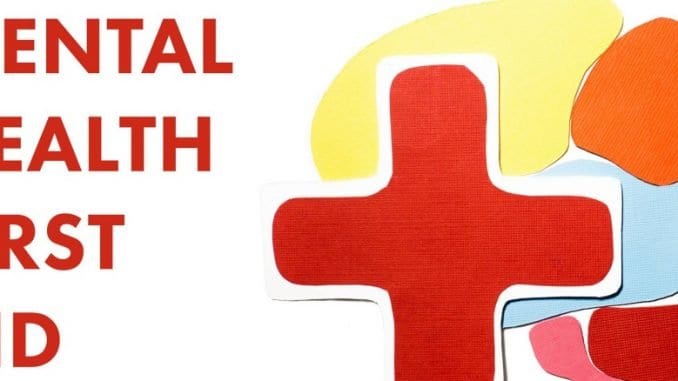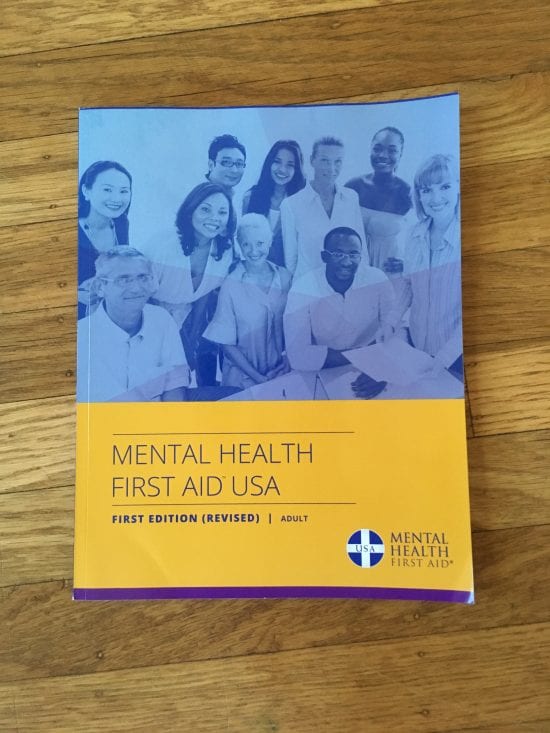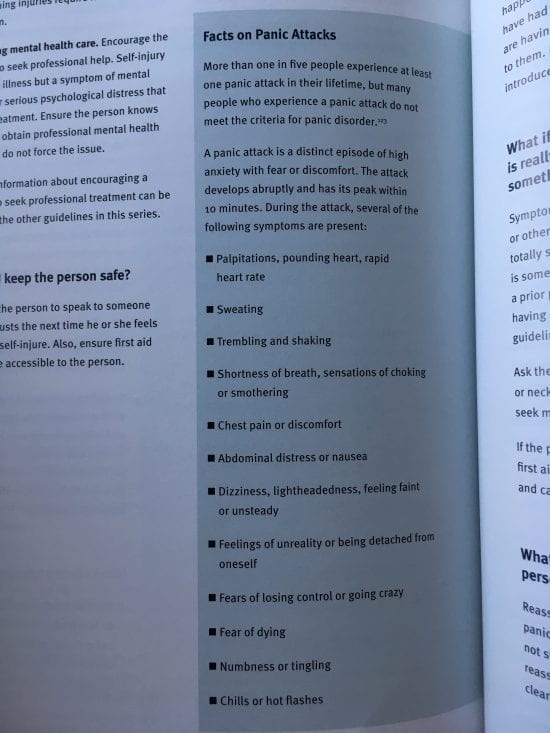
We train baristas how to handle problem customers, but do we train them how to handle issues concerning mental health? The BACC hosted a mental-health first-aid workshop aimed at equipping baristas with the tools to maneuver a variety of situations with care and understanding.
BY JASPER WILDE
SPECIAL TO BARISTA MAGAZINE
Cover photo courtesy of the Bay Area Coffee Community
The Bay Area Coffee Community (BACC) hosted an event October 4 called Mental Health First Aid, which took place at Counter Culture Coffee in Emeryville, Calif. The daylong workshop gave coffee professionals more knowledge about the many different mental-health issues and experiences that one might encounter in the workplace. As a board member of the BACC, I attended the event and learned techniques and tips to address mental-health issues that can arise in the cafe.
Our primary instructor, Catherine Willet, started the morning with a quick exercise of saying our names, pronouns, feelings about the morning, and who the most supportive person in our lives has been. A level of closeness was created after the group had shared somewhat personal information with one another.
The first part of the morning was focused on suicide and how depression, when untreated, can lead to suicide. We went over what the warning signs are and how not to pathologize singular symptoms. A particularly meaningful yet uncomfortable exercise was when we all went around the room and asked the question, “Are you having thoughts of suicide?” or, “Are you thinking about killing yourself?” One of the instructors, Ivan, underscored how important it was for us to practice asking this question directly and without negativity.

The afternoon session highlighted anxiety, and we discussed how to help someone who is having a panic attack—a topic very relevant to our high-stress work environments. One recommended approach for when someone is having a panic attack is to ask them if they’ve had panic attacks before. If they say yes, speak to them in a low and slow voice, using short and clear sentences. Not belittling the person’s experience is also important, along with acknowledging that the terror feels very real. Reassure them that a panic attack, while frightening, is not life-threatening or dangerous. Reassure them that they are safe and that the symptoms will pass in about 10 minutes.
The final part of the training focused on an experience many baristas have had in the café: how to deescalate someone who is having a psychotic episode. Some helpful tips we got are to repeat phrases if the person seems confused; be aware that just because a person is having a psychotic episode it doesn’t mean they are not feeling anything, even if the person is showing a limited range of feeling; and to, above all, treat a person like a human being. Some things to avoid when someone is having hallucinations or delusions are confronting the person, criticizing them, taking delusional comments personally, or using sarcasm. Another tip we got is to actively keep our energy and voice calm. Humans evolutionally respond to and mirror other humans’ moods and energy, which is why it is so easy to get agitated and aggressive back. But if we can manage to keep our tone low and voice slow and calm, we can hopefully get the affected person to mirror us.

We were also given a textbook manual to bring back to our cafés and managers. A very important resource included were crisis hotlines:
National Suicide Prevention: English (800) 273-8255 / Spanish (888) 628-9454
Text Help Line: Text “HOME” to 741741
Alameda Crisis Line: 800) 491-9009
Berkeley Crisis Line: (510) 981-5254
San Francisco Crisis Line: (415) 970-3800
With a deeper understanding of mental health, participants of the course left better-equipped to support the entire community they serve.
 ABOUT THE AUTHOR
ABOUT THE AUTHOR
Jasper Wilde is a coffee educator at Ritual Coffee Roasters in San Francisco and the board secretary of the Bay Area Coffee Community. Jasper is a social justice activist and is the co-host of Boss Barista, an intersectional feminist coffee podcast.

